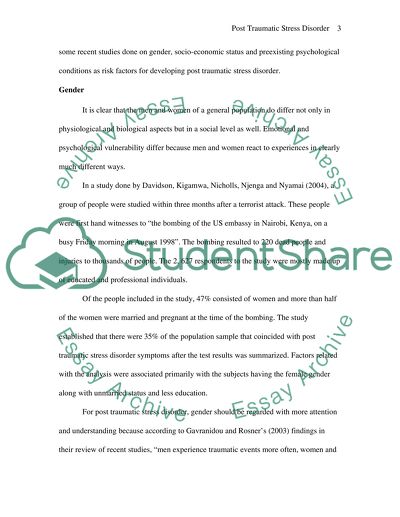Cite this document
(Risk Factors for Post Traumatic Stress Disorder Coursework Example | Topics and Well Written Essays - 1500 words, n.d.)
Risk Factors for Post Traumatic Stress Disorder Coursework Example | Topics and Well Written Essays - 1500 words. https://studentshare.org/psychology/1502682-risk-factors-for-post-traumatic-stress-disorder
Risk Factors for Post Traumatic Stress Disorder Coursework Example | Topics and Well Written Essays - 1500 words. https://studentshare.org/psychology/1502682-risk-factors-for-post-traumatic-stress-disorder
(Risk Factors for Post Traumatic Stress Disorder Coursework Example | Topics and Well Written Essays - 1500 Words)
Risk Factors for Post Traumatic Stress Disorder Coursework Example | Topics and Well Written Essays - 1500 Words. https://studentshare.org/psychology/1502682-risk-factors-for-post-traumatic-stress-disorder.
Risk Factors for Post Traumatic Stress Disorder Coursework Example | Topics and Well Written Essays - 1500 Words. https://studentshare.org/psychology/1502682-risk-factors-for-post-traumatic-stress-disorder.
“Risk Factors for Post Traumatic Stress Disorder Coursework Example | Topics and Well Written Essays - 1500 Words”. https://studentshare.org/psychology/1502682-risk-factors-for-post-traumatic-stress-disorder.


